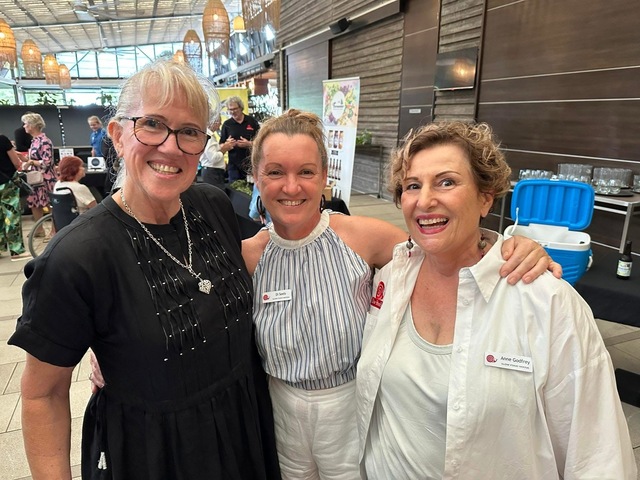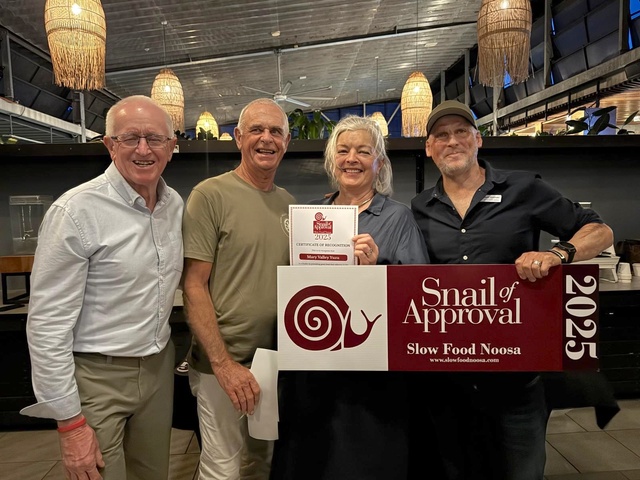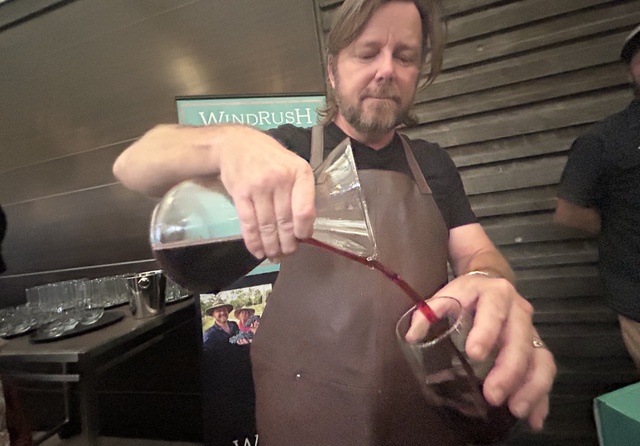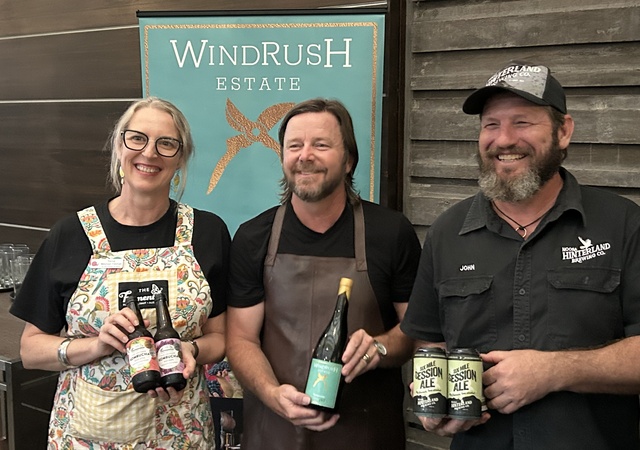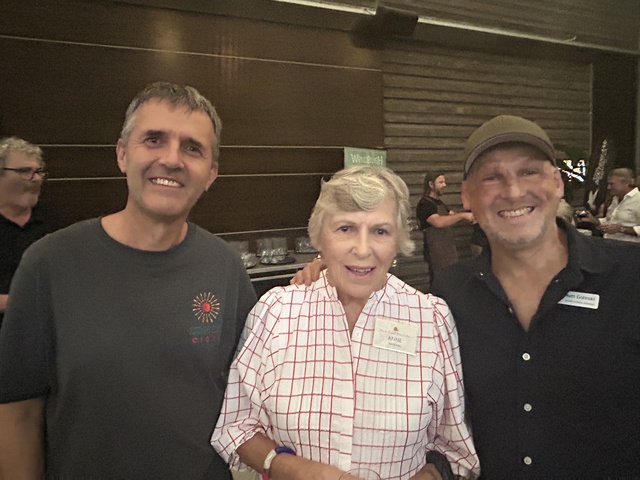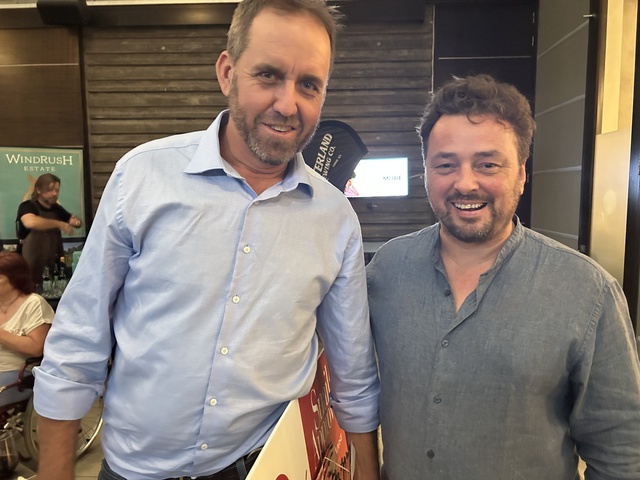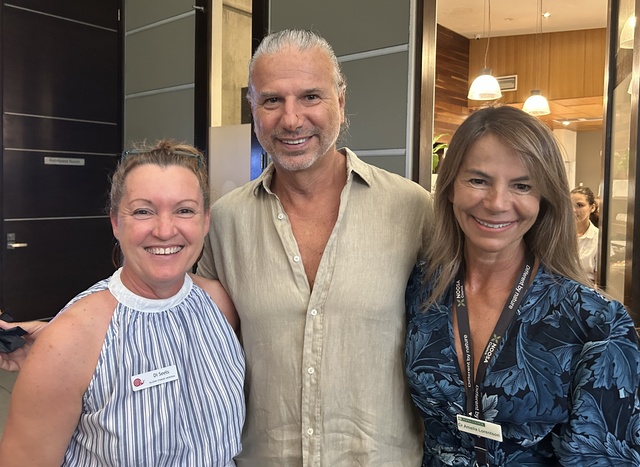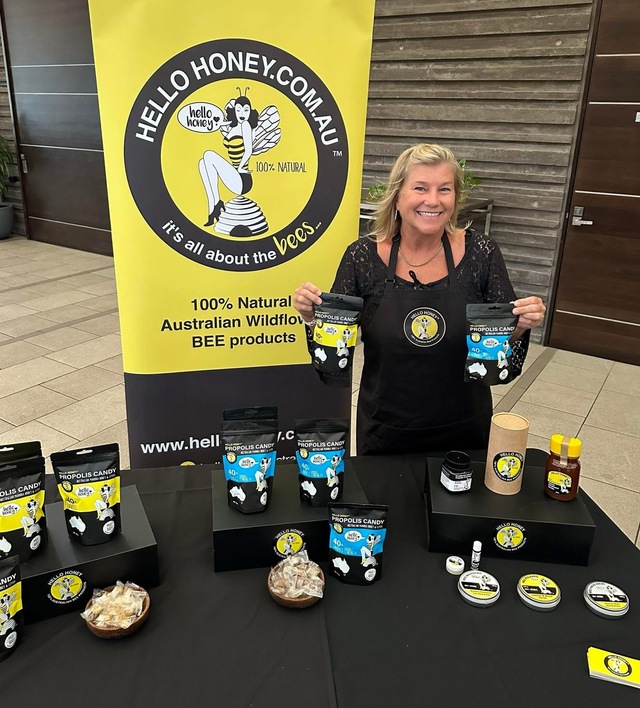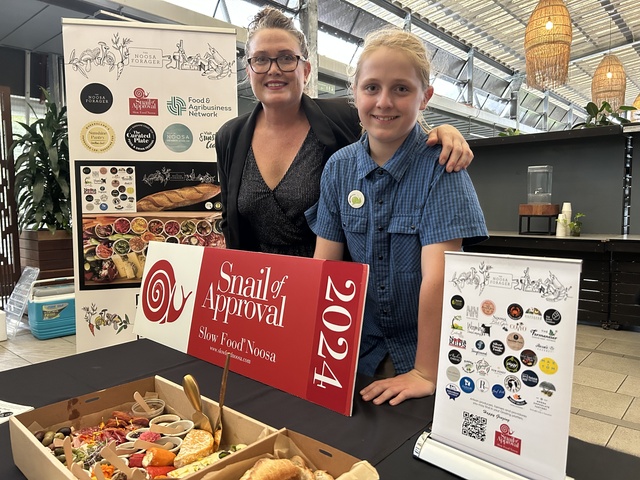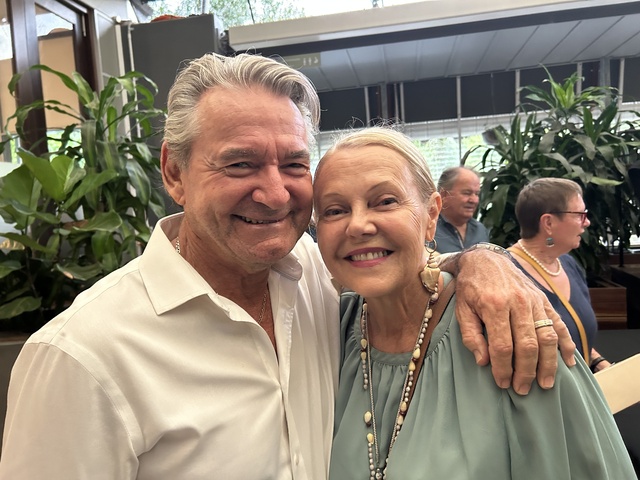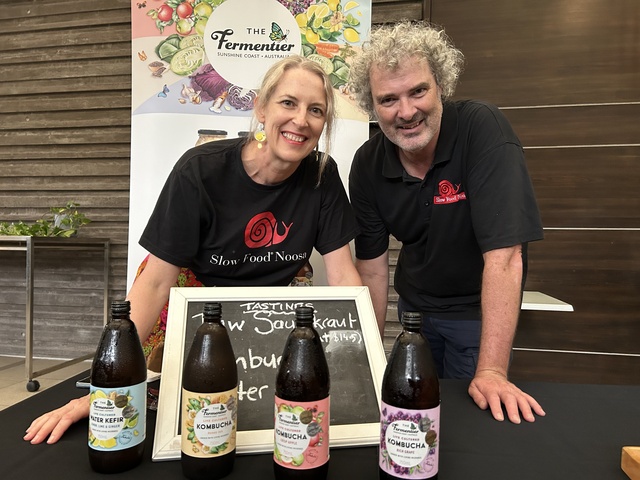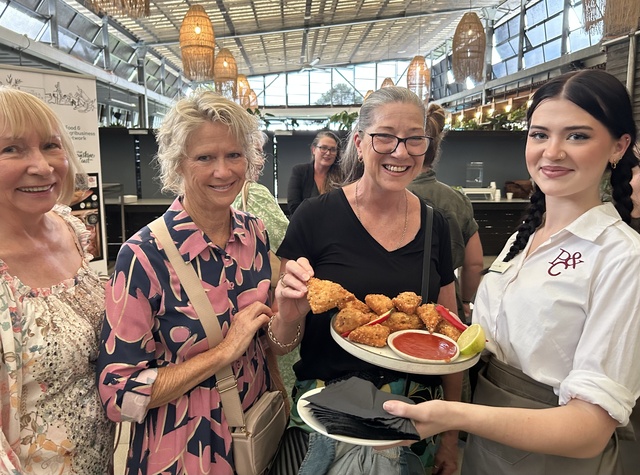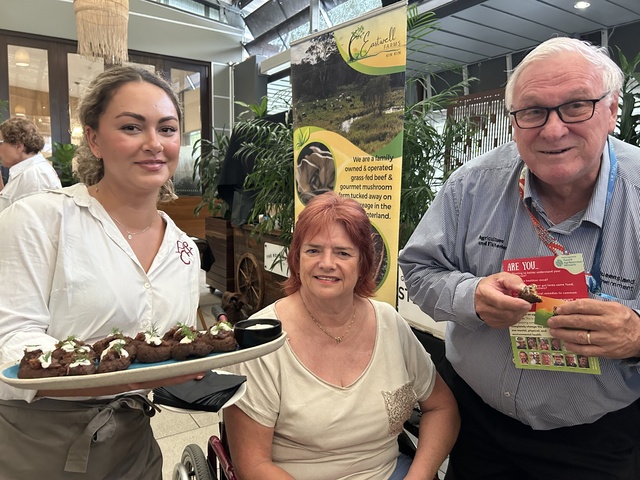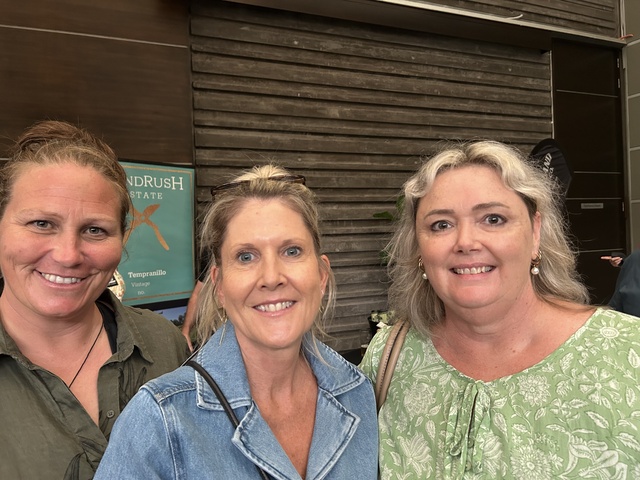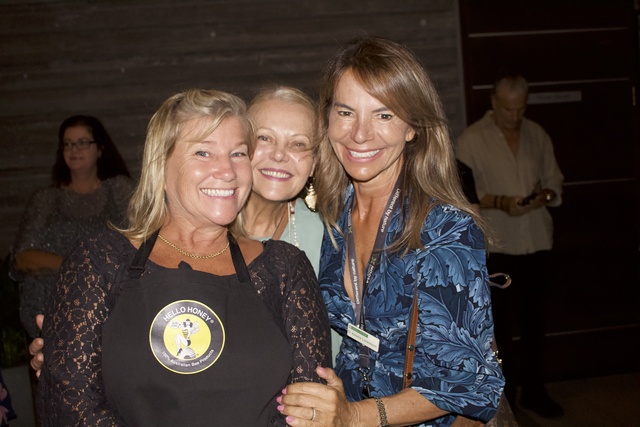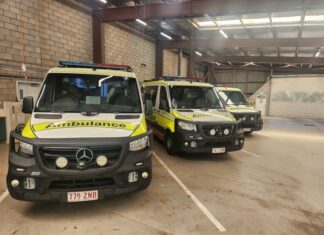It was a highly successful celebration of food – the way it can bring people together over good conversation and recognition of what goes into presenting food from paddock to the plate.
The Slow Food Noosa annual dinner is to honour those local farmers, producers, retailers and those in hospitality who have been recognised with the Snail of Approval.
Held at Park and Cove restaurant at Peppers Noosa Resort, the evening saw great engagement between producers from Noosa and surrounds who adhere to the Slow Food principles of good, healthy and fair food for all.
It was a night filled with genuine connection, insightful conversations, and a deep appreciation for the journey food takes from our local paddocks to our plates.
Slow Food Noosa president Anne Godfrey perfectly captured the atmosphere: “Convivial, welcoming, inclusive, creative and community building.”
Slow Food also encourages sustainable practices in food production but also care for the environment.
This was highlighted by the announcement another eight individuals or enterprises from within the Snails of Approval or Slow Food Noosa members would be eligible for 100 free trees to be planted on their properties in conjunction with Noosa Landcare.
Guests on the night included Member for Noosa Sandy Bolton and Noosa Shire’s Cr Amelia Lorentson.
Bionutrient founder Dan Kittredge, in Australia for a series of workshops throughout the year including the Mary Valley, highlighted the link between healthy soil and nutrient density in food.
Celebrity chef Matt Golinski welcomed Rod Lees as fellow patron of Slow Food Noosa.
Rod has been a Slow Food Noosa stalwart since he and his wife Karyn came to Noosa more than 10 years ago.
Passionate about the food that we eat, where it comes from and its relationship to our health and the environment, Rod and Karyn helped instigate the first Slow Food Snail of Approval recognition program in Australia.
His commitment for healthy and sustainable food production grew when they attended the Terra Madre Salone Del Gusto in Italy in 2016 – and they have attended every one since.
Terra Madre translates to Mother Earth and the event, held every two years in the city of Turin, is a coming together of Slow Food delegates from around the world in a celebration of food.
Slow Food started in 1986 in response to the push for fast food outlets in culturally significant areas of Rome.
It acknowledges heritage food production and the importance that plays in community life.
More than 500,000 attend the five-day festival and trade display of food from throughout the regions of Italy, Europe and the 160 countries that make up Slow Food internationally.
“Slow Food has changed our lives,” Rod said. “It’s been a real eye-opener.
“We have really started to appreciate good, clean food.
“Since joining, I have been reading and it has changed my actions.
“The focus now is on food quality, rather than quantity.
“There are those who say we need industrial-style agriculture because we need to feed the population of the world.
“The reality is we grow more food now than we need – in between 30 percent and 50 percent.”
There’s the love of good food and its connection to having been grown in good soil, Rod said, not with chemical fertiliser and pesticide.
For more than 10 years Rod has been very supportive of the farmers and the producers of food.
He is dedicated to maintaining a healthy, natural environment through connections with Noosa and District Landcare as well as Noosa Parks Association.
“Where we purchase our food, is changing,” he said. “What we do in relation to the environment is changing … everyone can make a contribution to the community in different ways.”
Rod is now keen to learn more about Slow Farming, bringing back age-old techniques that contribute to healthy food and a sustainable environment.
The rewilding of areas doesn’t simply mean setting aside specific areas to be reforested but recognising the benefits of linking trees with farming and soil conservation.
After all, healthy soil brings healthy food.
THE CONNECTION BETWEEN GOOD SOIL AND GOOD FOOD
Speaking at the night was Dan Kittredge, founder of The Bionutrient Institute, an organisation dedicated to promoting nutrient-dense food through better farming practices.
The institute is undertaking science-based approaches to gain a deeper understanding of soil health, plant nutrition, and what goes into growing food that is truly nourishing.
The term “nutrient density” refers to the amount of nutrients in a food or crop. The conventional assumption is that all carrots or all milk, for example, is the same nutritionally.
What Dan has found over the past three years is that one carrot can have many more nutrients in it than another.
“We understand that it is the combination of how a crop is grown – its variety, micro-biome, the weather conditions it experienced – that cause it to have higher or lower levels of nutrients in it.
“Nature is not a simple dynamic. The only thing we have found that correlates with the nutrient levels is the level of microbes in the soil.”
The institute is working to develop the data sets and instruments to show how to determine the nutrient density of a crop.
Like something out of Star Trek, it is possible to use a spectrometer to flash a light and judge the nutrient value of foods.
Think about having an app on your phone to effectively use that spectrometer so as to choose the fruit, the breads, the milk to purchase.
The basis of the food chain is the soil. It came here first.
WHAT WE DO WELL
The interaction between the farmers and producers who had set up stands in the trade display was highly effective.
Not only the professional way in which these Snails of Approval had set up their displays but the way they worked together, and interacted with the guests on the night.
The guests were welcomed and there was a choice of drinks from three producers that complemented each other – hand-crafted beers from Noosa Hinterland Brewing, tempranillo wine from grapes grown by WindRush Estate in the Mary Valley, and kombucha from The Fermentier.
Guests were able to freely find out what, where and why the producers were following their passion.
Among them were Dave and Julie Moffatt at Mary Valley Yuzu who started picking this exotic citrus fruit about two weeks ago.
It is their second crop and the trees will start to fruit heavily in another year or two.
There is interest from distillers, brewers and restaurants in their supply.
Showing the level of collaboration between producers, Mary Valley Yuzu is now working with John and Cara Tynan of Noosa Hinterland Brewing about a yuzu-infused wheat beer, brewed in Belgian style.
Apart from samples of their grass-fed beef and gourmet mushrooms, Alex Thompson-Welch from Eastwell Farms spoke about the forthcoming HEART Summit.
It is a health, environment and regenerative teaching summit that is held at the Kin Kin farm every year.
This year it will be held on May 24-25, with double the number of speakers from 2024.
The summit is dedicated to understanding health from an environmental perspective and the benefits of eating food which has been raised in a good, clean and fair way. This is not just for farmers, it’s for everyone.
Other displays included Judy Scrase of Hello Honey, just back from South Korea promoting her Australian-made natural honey products. A new propolis candy range is in the process of being assessed by the South Korean Food and Drug Administration and should be exported very soon.
Dee Young, The Noosa Forager, recently appeared on episodes of Channel 7’s Weekender program and Sunrise.
Both shows allowed Dee to showcase some of the best things to do in the region and to talk about the Slow Food principles.
Dee was able to promote the producers, and the quality of food available in Noosa and surrounds that she selects for her food platters.
For those who missed the Snail of Approval dinner, join Slow Food at their Film with Food night at Kandanga Hall as part of the GourMAY Mary Valley Food Festival on Thursday 8 May.
Details and booking events.humanitix.com/slowfoodnoosa

